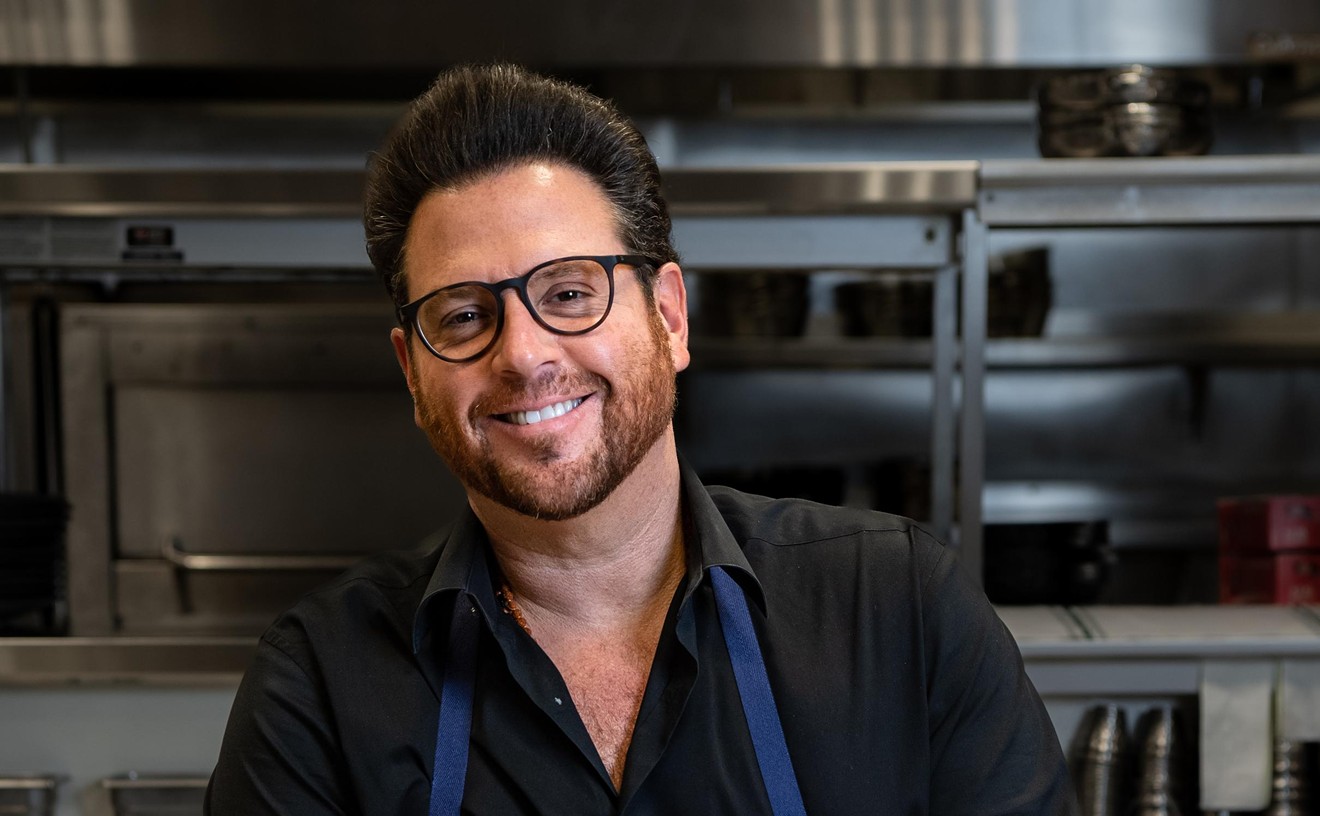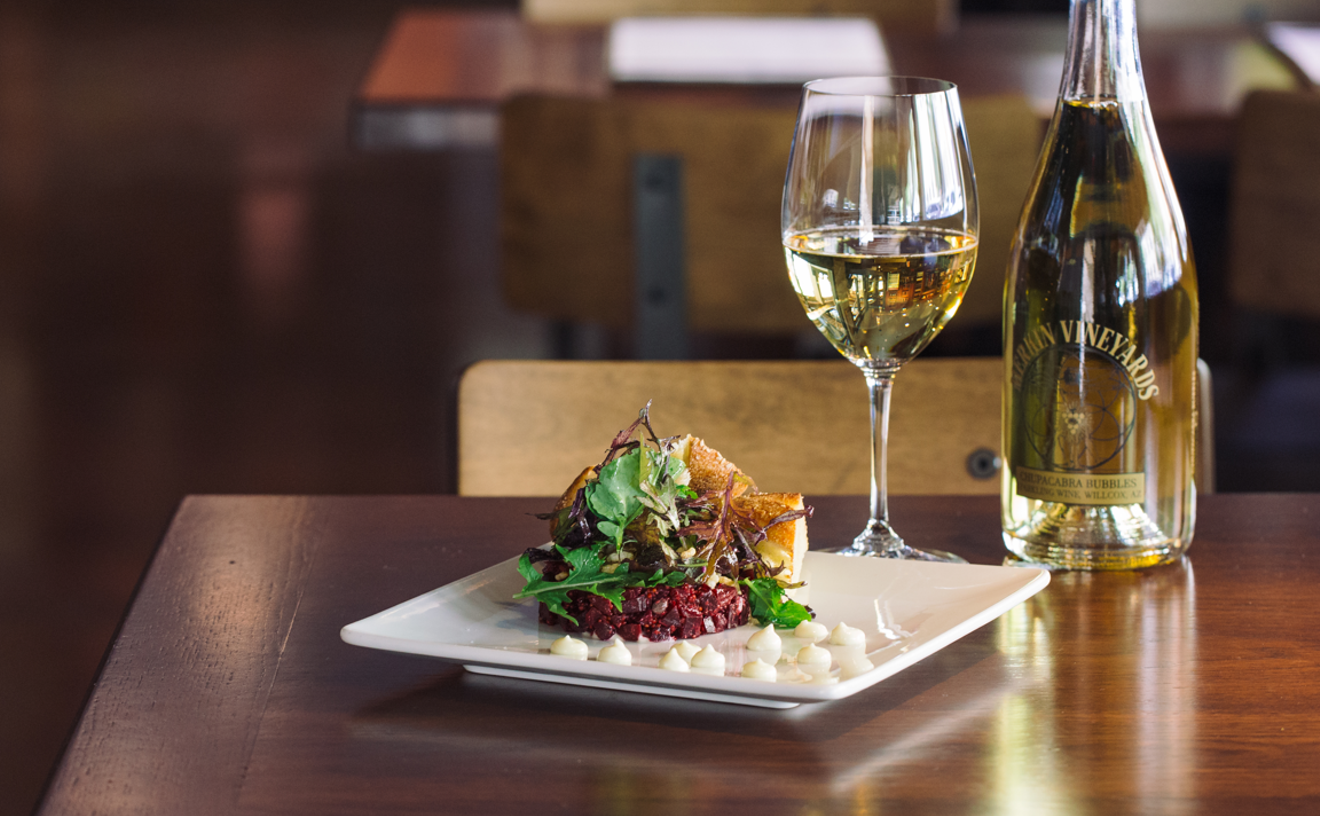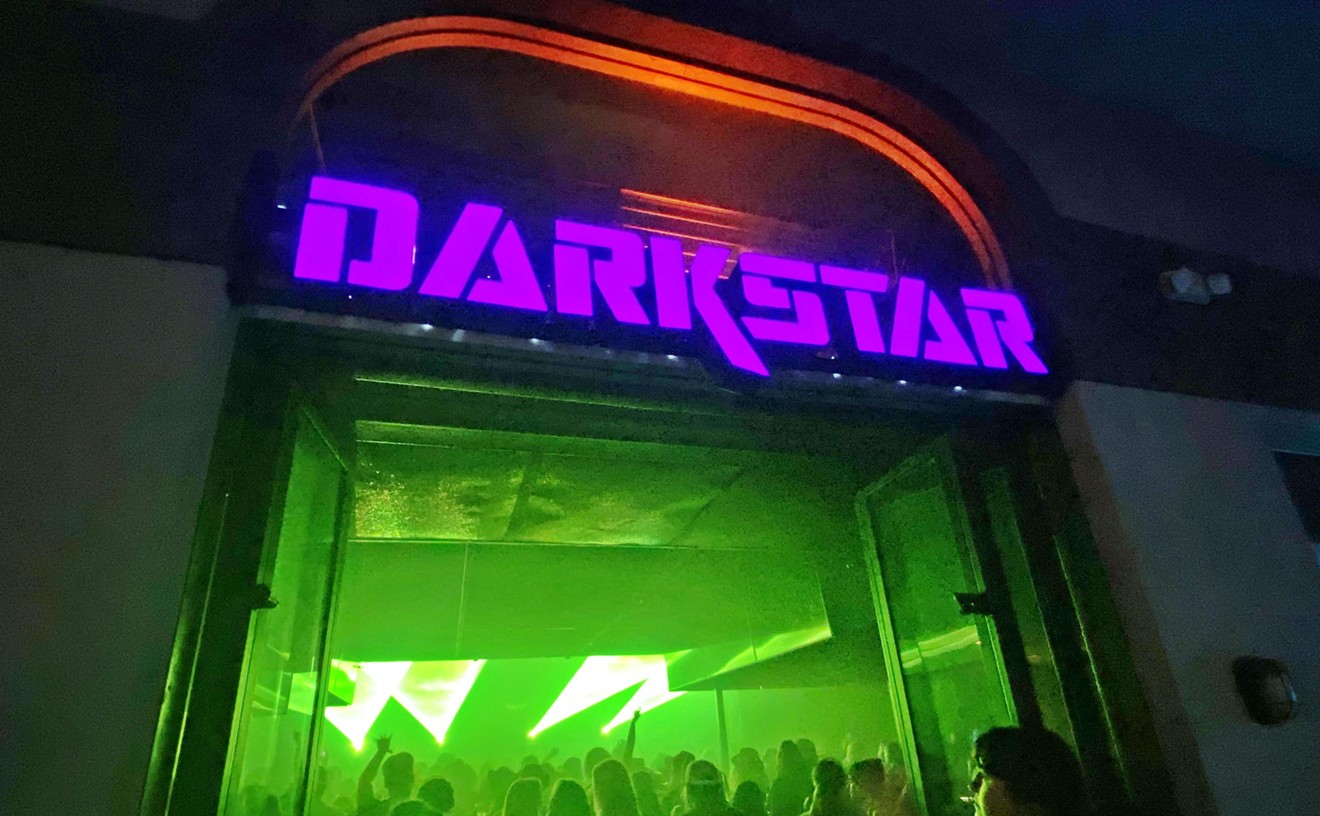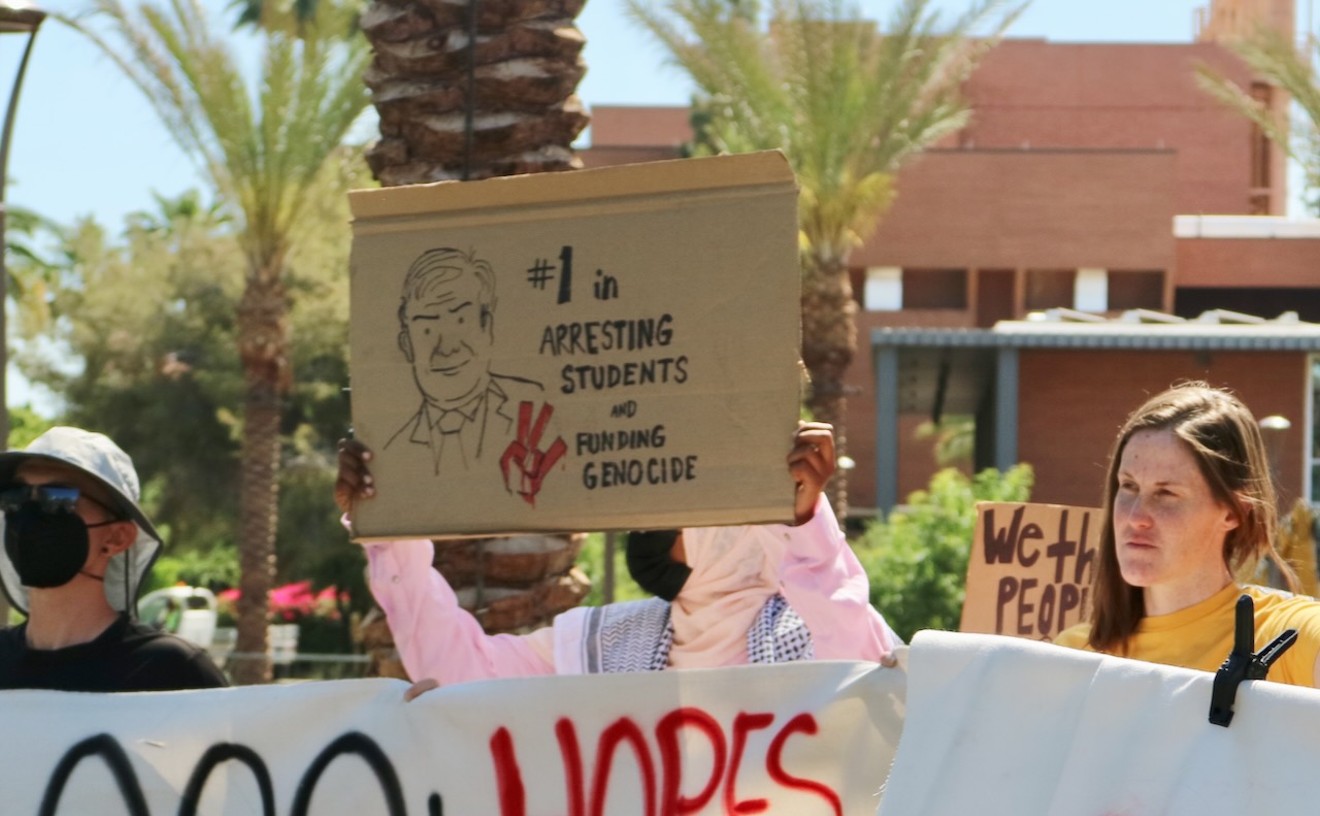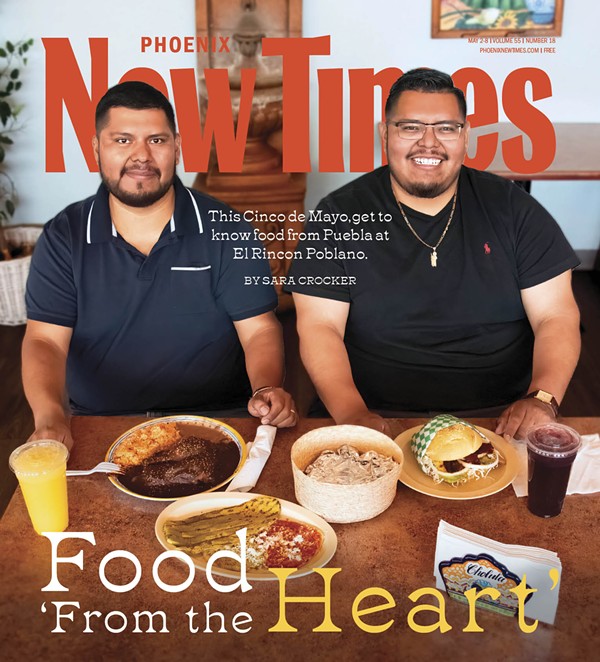Here's my variation: Recommending this movie to almost any adult--which I certainly do--is like recommending your favorite restaurant to someone you know will enjoy it. The pleasure it offers is connected to fundamental human experience; it's basic and, though not a bit mawkish, it's comforting. It will indeed make you hungry, but it will also feed you.
Set in the '50s, Big Night is about two young Italian immigrants struggling to keep a small, classical-Italian restaurant open on the Jersey shore. They're brothers, conveniently named Primo (Tony Shalhoub) and Secondo (Stanley Tucci)--Primo is the chef, and Secondo is the manager, and his brother's keeper.
The soft-spoken yet temperamental Primo is a purist who serves up masterly, authentic Italian dishes. He's bitterly offended by the American palate, and America's unsubtle, tomato-sauce-smothered notion of his homeland's cuisine. Because of his refusal to modify his food to Jersey tastes, the restaurant, called the Paradise, is a month away from foreclosure.
It's been kept afloat for two years only through the constant efforts of Secondo, a pragmatist who loves America and wants to own a Cadillac someday. The restaurant across the street, run by the compact, explosively gregarious Pascal (Ian Holm), serves knockoff Italian-American food which makes Primo fume, but which keeps Pascal's cash register ringing.
The envious Secondo asks Pascal for help, and Pascal promises to arrange for jazz great Louis Prima, who he claims is his friend, to dine at the Paradise. It is into this big night that Primo and Secondo sink all their resources, hoping that the publicity generated by the singer's visit will turn the tide of their fortunes.
This banquet, to which all of the brothers' friends, a few of their enemies, and several of the women in their lives are invited, forms the climactic movement of the film--the main course, as it were. But the appetizers which precede it are flawless. In description the plot sounds as if it might easily be coying and condescending in its ethnicity. But the script, which star Tucci wrote with his cousin Joseph Tropiano, adds plenty of salt--the dialogue is full of trenchant wit, and the characters are fully rounded people, so they're endearing instead of merely cute.
Aesthetic purists tend to be no less tiresome as fictional characters than as real-life people, and Primo is allowed to be a full-fledged pain in the neck as well as a culinary genius. He emerges as a fuller and more lovable character than most inflexible artists, however, because he creates the sense that he cares for nothing but the excellence of his food. He's withdrawn, almost scarily quiet when he's away from the kitchen. He's so hopelessly shy that he's unable to ask Ann (Allison Janney), the florist he likes, to come to the party; the smoothly charming Secondo has to do it for him. Yet when Primo's showing Ann his kitchen, he springs to life. She's happily startled by his passion toward his work, and the food he gives her to taste is his potent seduction (throughout the film, the responses of all the characters to Primo's food often suggest orgasmic bliss).
The worldly Secondo is a different sort--energetic, outgoing, able to talk his way out of proposing to his long-suffering girlfriend Phyllis (Minnie Driver) and by no means above sleeping with Pascal's wife (a resplendent Isabella Rossellini, in her best role in years). Secondo's a hustler, but he's not without dignity, and he's touched with melancholy, because his life's work is protecting his brother.
Tucci, the foxy scene-filcher who took the role of shady rich guy Richard Cross on TV's Murder One to nearly Shakespearean heights last year, is the core of Big Night. Yet the success of the film comes from the trio of collaborators with whom Tucci worked--with Shalhoub on the acting, with Tropiano on the script and with Tucci's school friend, the actor Campbell Scott, as director.
The joy of Big Night is that it's dramatically untidy, in the good way that gives you unexpected revelations. The characters do the unexpected, and Tucci and Scott don't make a big deal out of it. Angry at Secondo, Phyllis flees the restaurant. Secondo follows, and finds her neck-deep in the ocean, stripped to her underwear. She returns to the beach, looking like a bathing goddess, and smiling rather than screaming.
It's irrational, and it's never explained, but it seems just right--just what a person would actually do. And the image is ravishing. So is the dreamlike, slow-motion sight of a chef fleeing down an alley with his apron in flames, followed by the cursing Pascal. Tucci and Scott--neither of whom has ever directed a movie before--show an amazingly confident eye. As good as the entire cast is, from Holm and Rossellini down to the bit players (including Scott as a sour Cadillac salesman), Big Night isn't just an actors' showcase. It's also wonderfully evocative on a visual level.
On its own modest terms, Big Night is about as close to perfect as any film I've seen all year. Any fault-finding may seem like rank ingratitude, but, hey, it's my job. There are a few moments where the editing seems a bit unsteady, and there's a jarringly overstated scene, when Primo raves to a friend that Pascal commits "the rape of cuisine." It isn't that this doesn't represent his feelings, it's that it states them too blatantly for his character (especially since he says it in English instead of Italian).
Primo doesn't need to say it at all; his actions already show how he feels. What makes Big Night so exciting is that, good as the rest of the dialogue is, the film isn't a talk piece. It's a movie of actions, of people doing things--cooking, eating, fighting, making love--rather than talking. A busboy (Marc Anthony) says maybe one or two lines in the entire film, yet by the end, we know him. Long passages of the film go by with no dialogue at all, just uninterrupted scenes of cooking. It's incredibly refreshing.
Big Night:
Directed by Stanley Tucci and Campbell Scott; with Stanley Tucci, Tony Shalhoub, Isabella Rossellini, Minnie Driver, Ian Holm, Pasquale Cajano, Liev Schreiber, Campbell Scott and Caroline Aaron.
Rated





